I have a family member who, after living a happy but hectic life here in California, decided to rent out their Bay Area home and moved to the beach in Mexico. Their new slow life in Mexico inspires me–think a 20-hour work week, daily surfing, and lots of quality time with their son–so I’m happy today to bring you a similar story from Nicaragua. This fourth installment in the new living abroad series comes from Kat, an American from California living in San Juan del Sur, Nicaragua with her husband, 3-year-old daughter, and dog. She talks about expat life in Nicaragua: the slow pace of life, having a housekeeper, how the move has benefited her marriage, and what it’s like raising kids in Nicaragua.
On the decision to move to Nicaragua:
We moved here in April 2015. We came for a lower cost of living to get by on my husband’s disability payments. Also, we own land in the area and are trying to sell it, and I own a very small local business.
On first impressions of life in Nicaragua:
Hot! It was very hot and our house was very hot, and it was hard to even go anywhere because it was so hot. It also seemed very difficult to find any healthy food. The power went out frequently. My child was just turning two, and all this made it very challenging for me.
Everything is so much better now. We moved to a cooler location, and now I have my daughter in a wonderful school and have a house cleaner to help.
On cultural differences:
People here are so nice that sometimes they don’t tell the whole truth, but rather tell you what they think you want to hear. This is sometimes very confusing, but we are used to it now and know that it is not meant to be deceptive, just agreeable.
The pace of life is much slower here, no one is in a hurry to work. This can be frustrating if you want to get something done. We have a joke here, if you get one thing accomplished per day, then it is a good day.
Safety and driving standards are very different from the USA. That can a bit scary at times, but it really makes us be careful and aware of our surroundings and safety. Overall, however, it is much safer here: much less traffic, almost no guns, and very little serious crime. There is a feeling of everyone watching out for each other, maybe because there are very few police.
On making friends in another country:
We made many other expat friends through my child’s international school. Also we see many friends with kids down on the beach by the restaurants in the afternoon. One of my best friends is my cleaning lady and neighbor–we talk every day and our children are best friends.
Enrolling your child in school is a great way to meet people, and hanging out at the beach is fun for everyone. Learning Spanish is very difficult but it is a must if you want to have any local friends. In fact, your Spanish teacher could be a great new friend!
On the slow rhythm of daily life in Nicaragua:
A typical day looks like this: I wake up, have coffee, make breakfast, and we read/watch cartoons. Rosibel comes to clean and the kids play. My daughter goes to school or stays with Rosibel’s child and nanny, or comes with us to town. We may go to breakfast, run errands (shopping is a multi stop endeavor), bump into friends and chat.
Later we go home (to a clean house!), swim in the pool, work in the garden, make lunch, and have nap time. Later we may go together to the beach for sunset and meet up with friends, have dinner at the beach, or come home and cook dinner.
On raising kids in Nicaragua:
The best thing for me is all the support I have as a mother. Having a house cleaner has changed my life! I love having a clean house but have always struggled with housework. Now I don’t have to worry about it and can do stuff I enjoy, like playing with my kid, reading, and gardening.
The other best thing is the freedom for kids here. It is like the USA in the fifties. Kids run free, going to each other’s houses unannounced and playing together outside. It is so safe for them, and watching my kid play out in nature is such a joy. Also it is amazing to hear my kid learn Spanish so naturally.
On the challenges of living in Nicaragua:
Bugs. Heat. Bugs! Dengue, Zika, and chikungunya are very real and happen all the time. I had dengue last month, so we have to use bug repellant every day (rainy season only) and sunscreen. It is a bit scary living two hours away from a modern hospital.
It is hard to find healthy food here, so we cook mostly from scratch and eat a more simple diet than before. But we also spend WAY less on food.
Surprising things about living in Nicaragua:
Dengue is just another illness, no big deal.
There are no parking police, so you can park wherever you want.
You get used scorpions after a while.
My kid doesn’t get excited about seeing monkeys anymore.
On how living in Nicaragua has benefited the marriage:
As a married person I can’t say enough about how much having domestic help has done for our relationship. We now have time and energy to spend time together, not just as a family, but as a couple. We regularly have breakfast or lunch out together, and we have drinks together while kids play on the beach. Housework used to cause a lot of friction in my house, and now it is not an issue at all.
What aspects of life in Nicaragua do you wish the U.S. would adopt?
In the States nowadays parenting is so intense and moms take it so seriously (the whole helicopter parent thing). Everything has to be organic and Pinterest worthy. Here it is so easy. The people here are lighthearted and easy-going about kids. They are welcome everywhere and, for example, are not expected to sit still at restaurants. Nobody is judging you as a parent. If your kid is freaking out, they just laugh.
Also there is more of a hands-off approach, like kids playing outside together. It is a relaxed attitude about stuff like what they eat, what they do, and watching TV. It is such a relief, and I think all the kids and adults benefit from the relaxed attitude.
On what’s next:
I love it here. The house I am renting right now is so amazing that I never want to leave. It is a mountaintop villa with an infinity pool, ocean view, big garden, and daily house cleaning. It costs less than a small apartment where we come from in California. This small town is perfect for little kids, but I can see it maybe being too small when my daughter gets bigger.
We have thought of maybe going to Europe when she is a teenager, so she can have access to more things like museums, art, and higher education. I would be sad to leave all my new friends though, so we will have to wait and see.
Thank you, Kat!
Photo credits: All photos are from Kat except photo 1: Freya Mohr/Getty Images, photo 3: Alba Sud Fotographia on Flickr, photo 4: elaine on Flickr, and photo

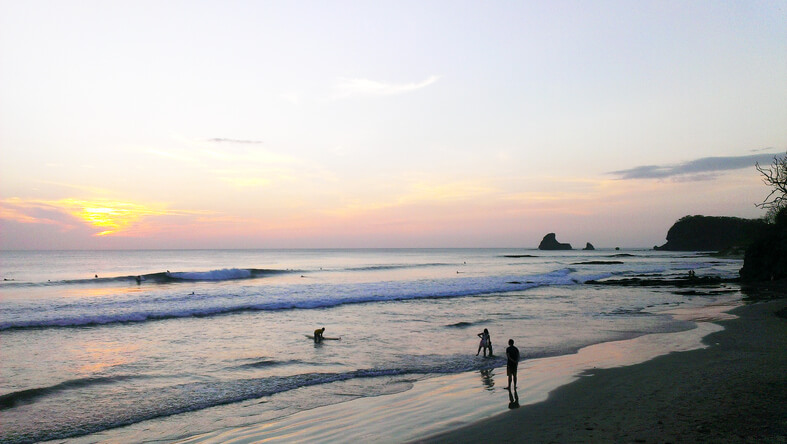

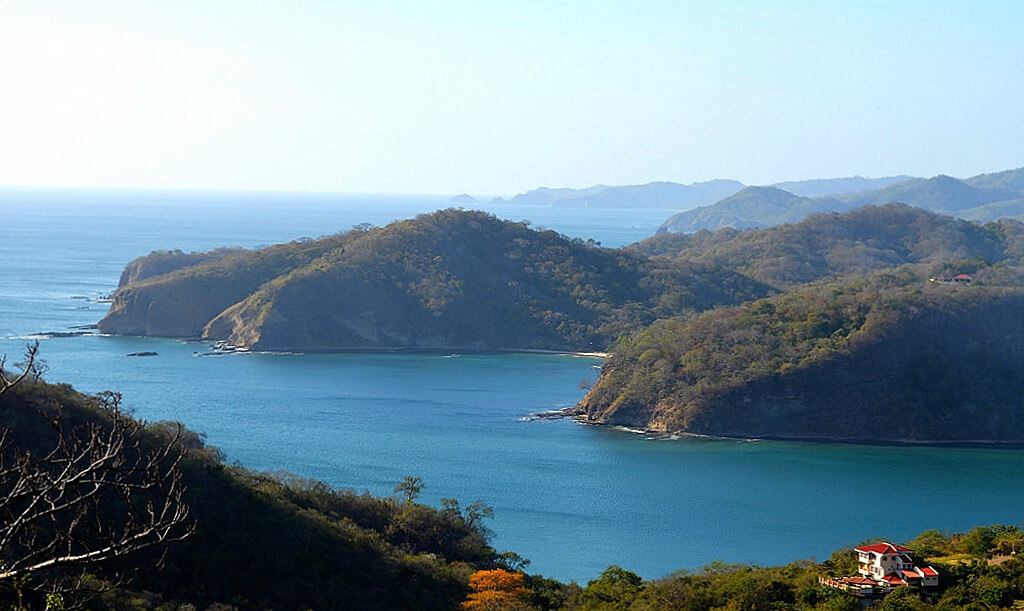
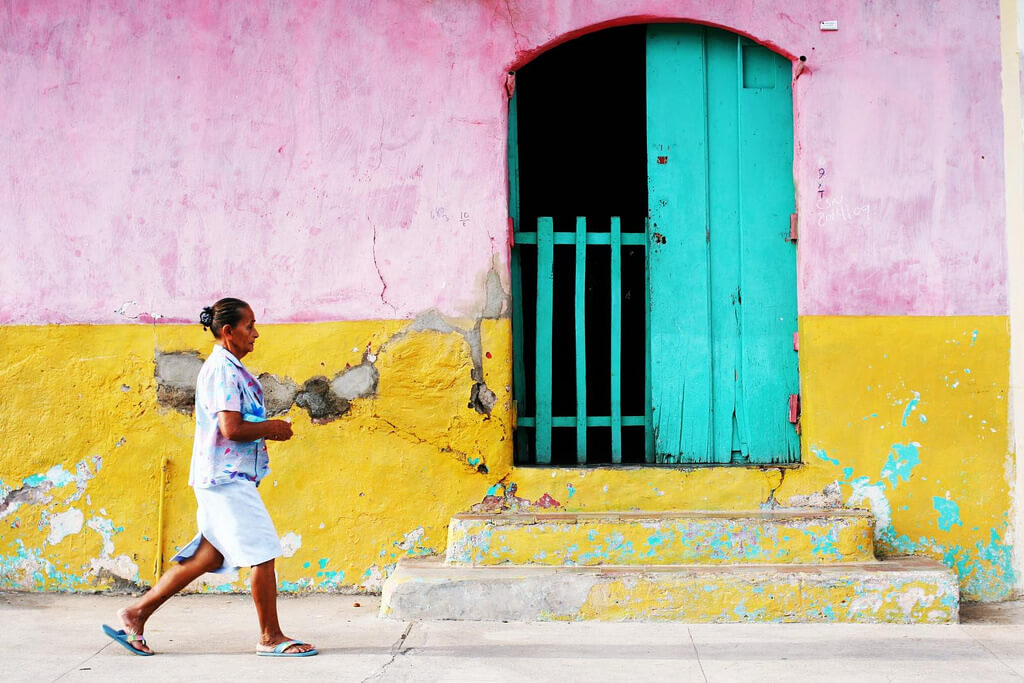
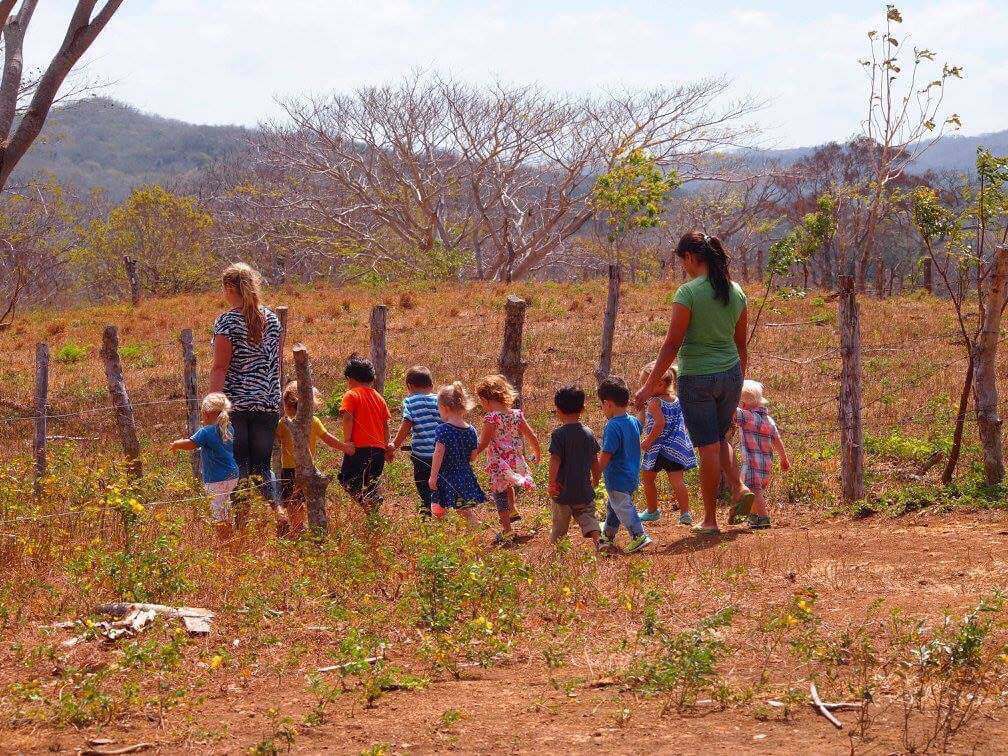
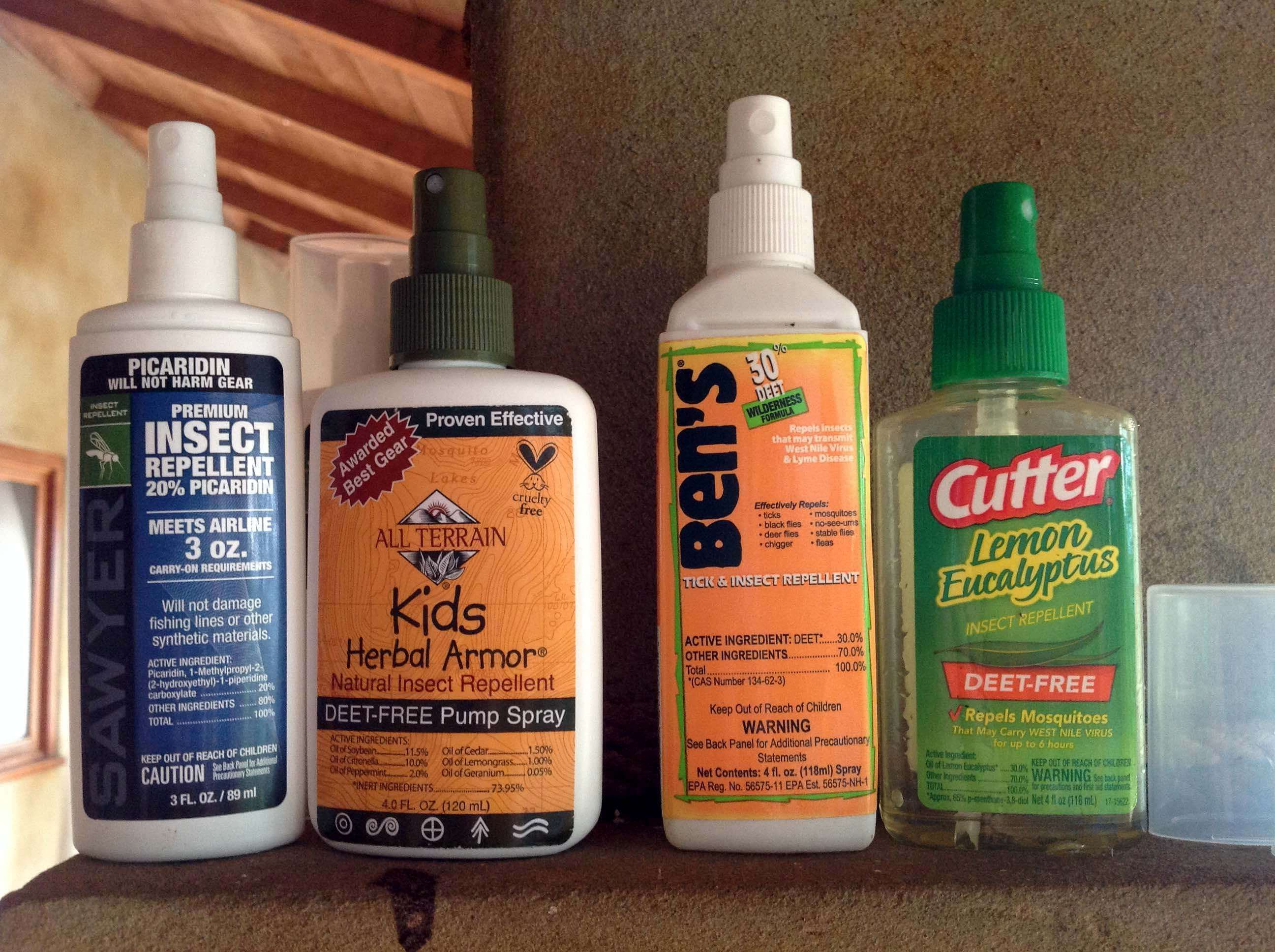
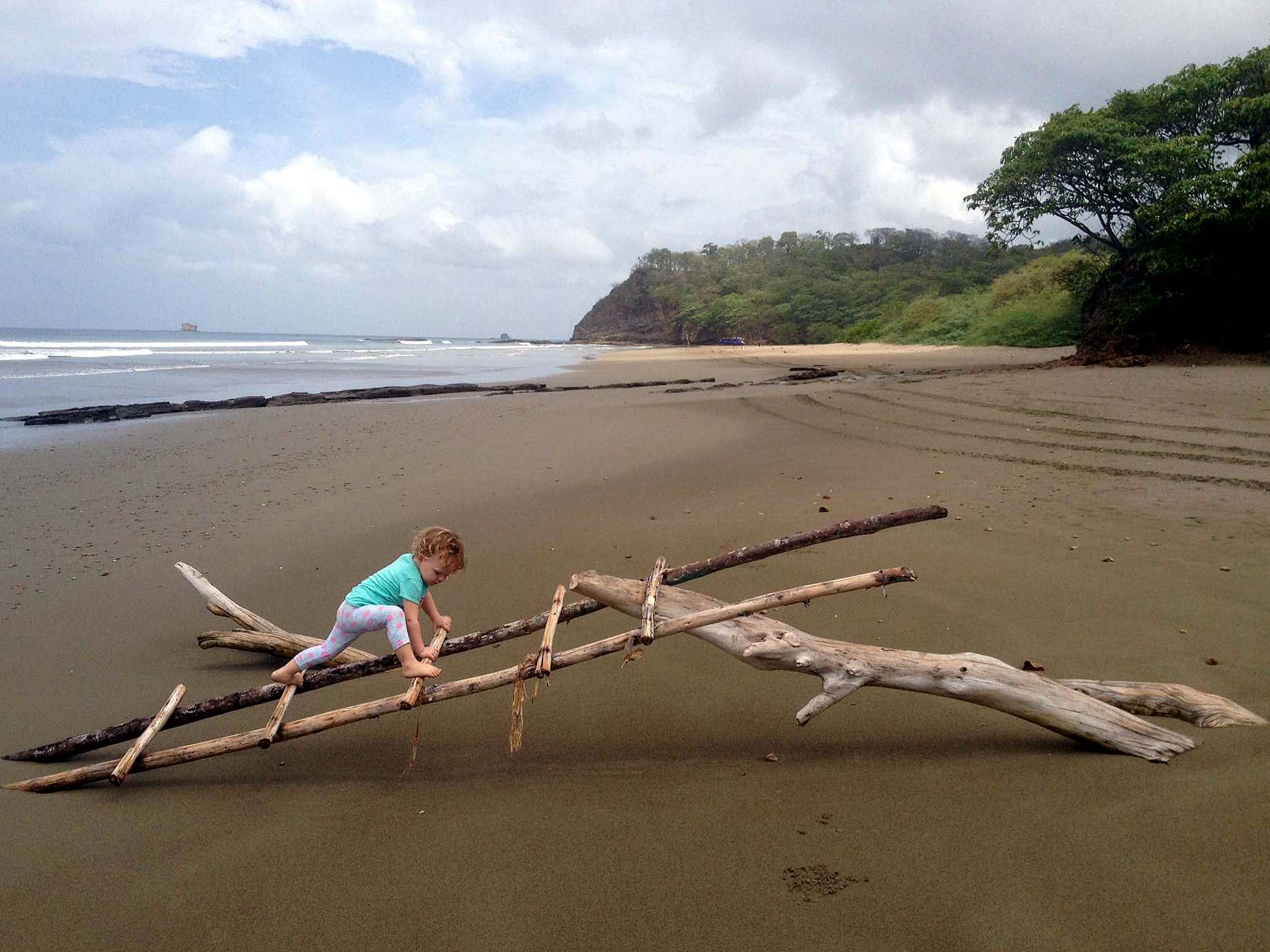
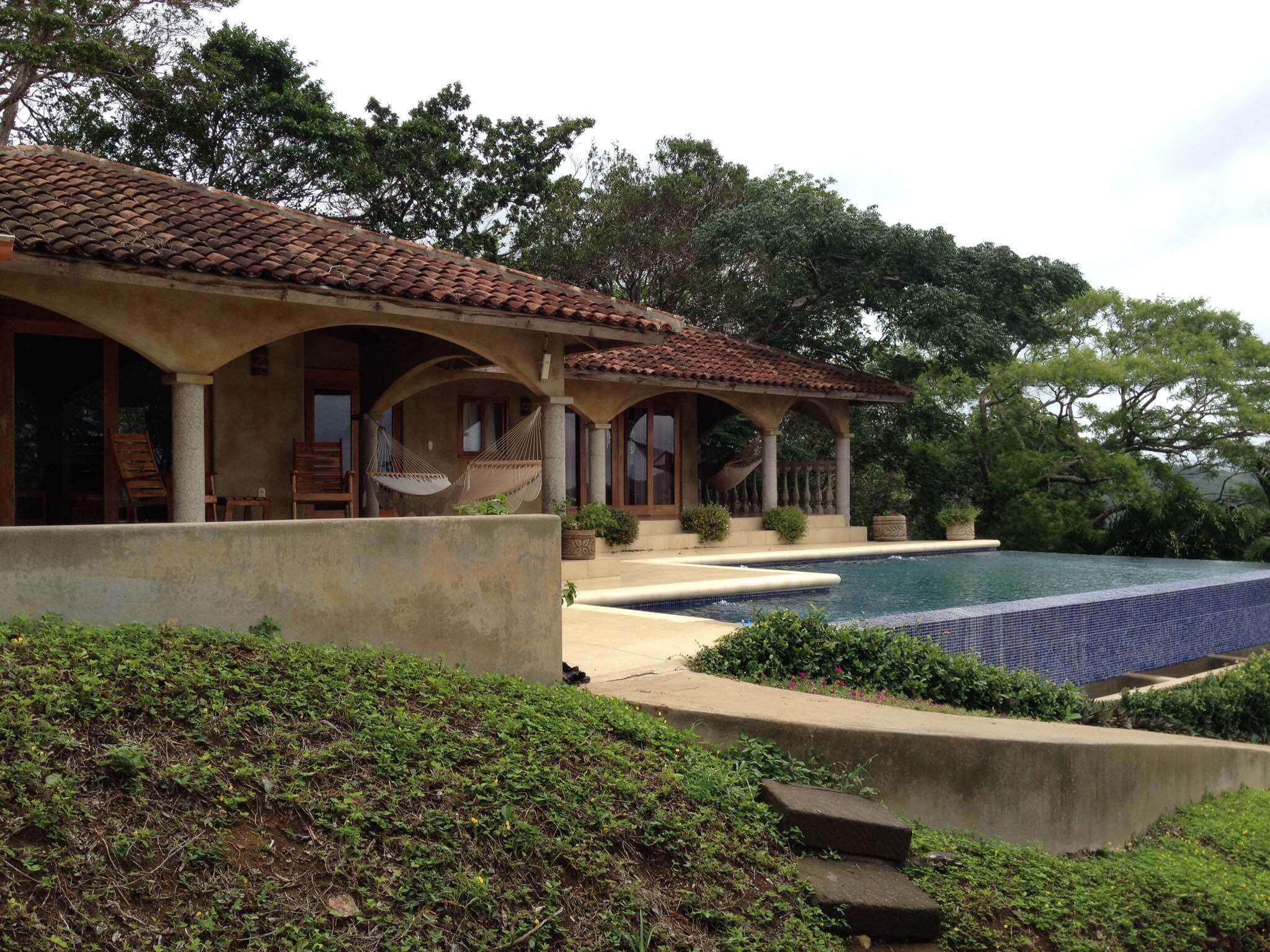
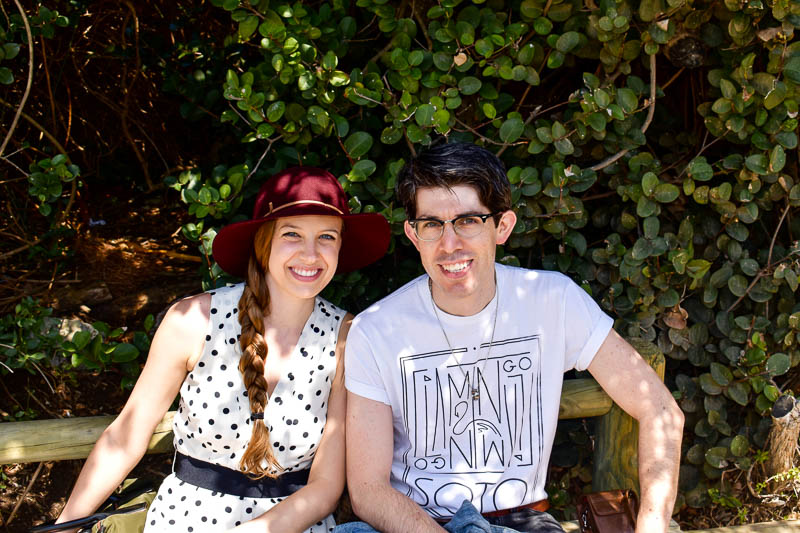
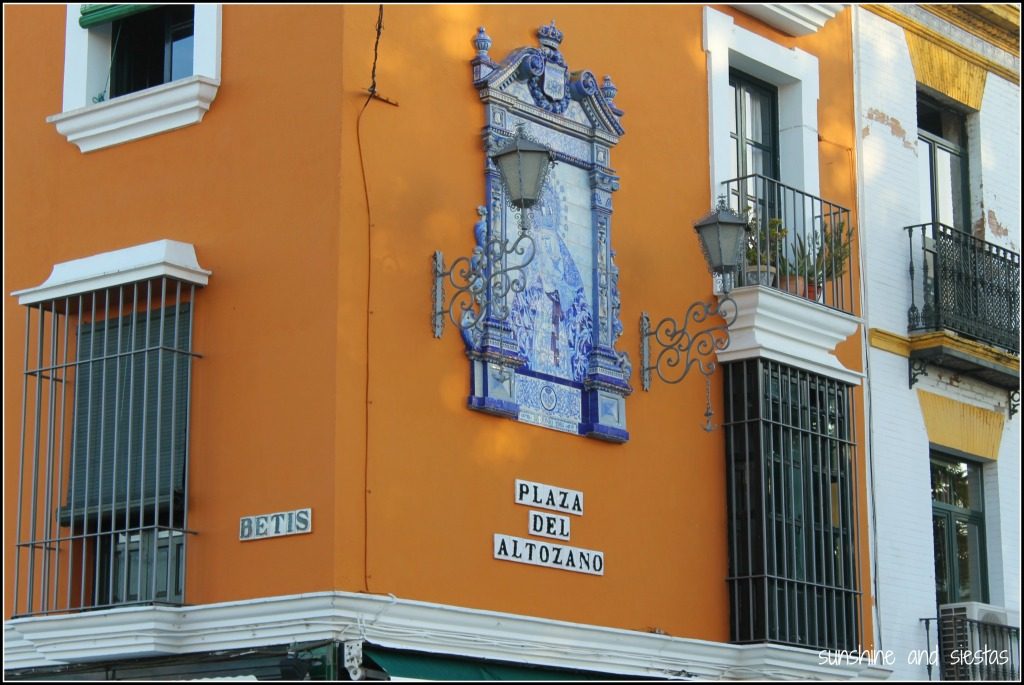
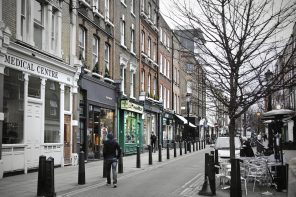
I think this is the second time in the last couple of weeks that I have read about the joys of having someone to help you clean! Sounds like a dream! I feel like by the time I can afford to have someone clean my house, I probably will not have kids making a mess of it every second. ha!
Yeah, this is something I’ve thought a lot about because it’s very common to have that kind of help in Brazil, too, so most of the people I know who live there have daily help at home. They do laundry, cook, clean, do dishes, iron, etc., and unlike here where domestic help is very expensive, this kind of help is available to people in the middle class. Because so many women in the U.S. work full time and are expected to take care of a majority of the household duties, the demands put on working mothers in the U.S. are often huge.
Agreed! I’m just looking forward to the day when I can have my kids do their own laundry 🙂
Me gustaria que me invitaran a su casa! Saludos!
https://www.amnestyusa.org/sexual-violence-against-girls-in-nicaragua-widespread/
I think you are unaware of how your neighbors live. There is violence against peaceful protests, unequal access to healthcare and rampant sexual assault on small children.
THank you for bringing this up. This is an interview that I did with someone who moved to Nicaragua, but perhaps it’s time to take it down. I do not want to promote expat living in a place where the local population is regularly put at risk.
She knows what it is like living there. Many of the claims about Nicaragua are falsehoods told for the purpose of disinformation. I live in Latin America and see the same things.